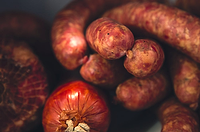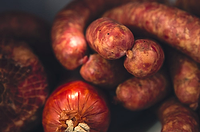South Africa’s Deadly Listeria Outbreak Declared Over

December 5, 2017
South Africa’s Department of Health first announced the outbreak. A joint investigation involving multiple public health agencies and officials.
March 3, 2018
Health officials finally confirmed the outbreak strain source—a RTE processed meat plant owned by Tiger Brands (the Enterprise Foods Polokwane production facility). Listeria had also been identified at an RCL-owned facility (Rainbow Foods).
March 4, 2018
The Health Department enforced a mandatory and immediate recall of all RTE processed meat products produced at these facilities.
April 5, 2018
The World Health Organization (WHO) increased its technical support to South Africa, enabling the country to better contain the outbreak, and to strengthen its existing health systems to prevent future outbreaks from occurring. Also on this day, the Department of Health, along with the National Institute for Communicable Disease—both supported by WHO—drafted an emergency response plan aimed at controlling and ultimately ending the outbreak,and preventing future listeriosis outbreaks.
An Incident Management Team was formed. Approximately 900 environmental health practitioners in every South African health district was re-trained in factory inspections, food safety systems, and Listeria testing within food facilities.
All processed meat factories in South Africa were inspected by the Health Department, the Incident Management Team, and various metropolitan and district municipalities. The inspections revealed that South Africa had 157 facilities that produce RTE meat, conducting food and environmental testing at all of them.
The Department of Environmental Affairs confirms that 5,812 tons of food have been recalled and destroyed since early March 2018. This ongoing process is expected to continue into September 2018.
WHO, along with international and local food safety experts agree that no new listeriosis cases have been identified since the first week of June 2018. And, over the last 2 months, the rate of laboratory-confirmed cases has dropped to pre-outbreak levels. This is why health officials have declared the outbreak officially over.
September 3, 2018
South Africa’s health minister declared an end to the listeriosis outbreak caused by ready-to-eat (RTE) deli meat. As of the last Situation Report, released in July 2018, there were 1,060 laboratory-confirmed cases and 216 deaths.
Outcomes
With the help of WHO, South Africa now has a surveillance system in place to find and test all Listeria isolates from human cases to identify clusters of cases that may represent outbreaks. Early investigation groups will detect outbreaks and identify affected foods early.
South Africa’s food safety laws have been revamped. All RTE processed meat facilities must have food safety management systems in place, according to new regulations that went into effect on June 14, 2018. Also, food facilities are inspected according to updated hygiene regulations.
Health officials have shared information about food safety and how to avoid Listeria for persons who are most at risk.
The emergency response plan will continue to be carried out.
Despite concerted efforts, both government and private sector investigators were not able to determine how the Listeria outbreak strain ended up in the affected food facility.
With the Health Department’s announcement comes the reassurance that RTE processed meat can now be safely consumed, just as it was before the outbreak. South African consumers are warned that this does not mean that no one will ever be infected with Listeria bacteria. However, everyone is encouraged to practice good hand hygiene, safe food temperatures, cooking food thoroughly, and keeping raw and cooked foods separate.
Sign up for Food Safety Magazine’s bi-weekly emails!
Subscribe to our podcast: Food Safety Matters!
Looking for a reprint of this article?
From high-res PDFs to custom plaques, order your copy today!





